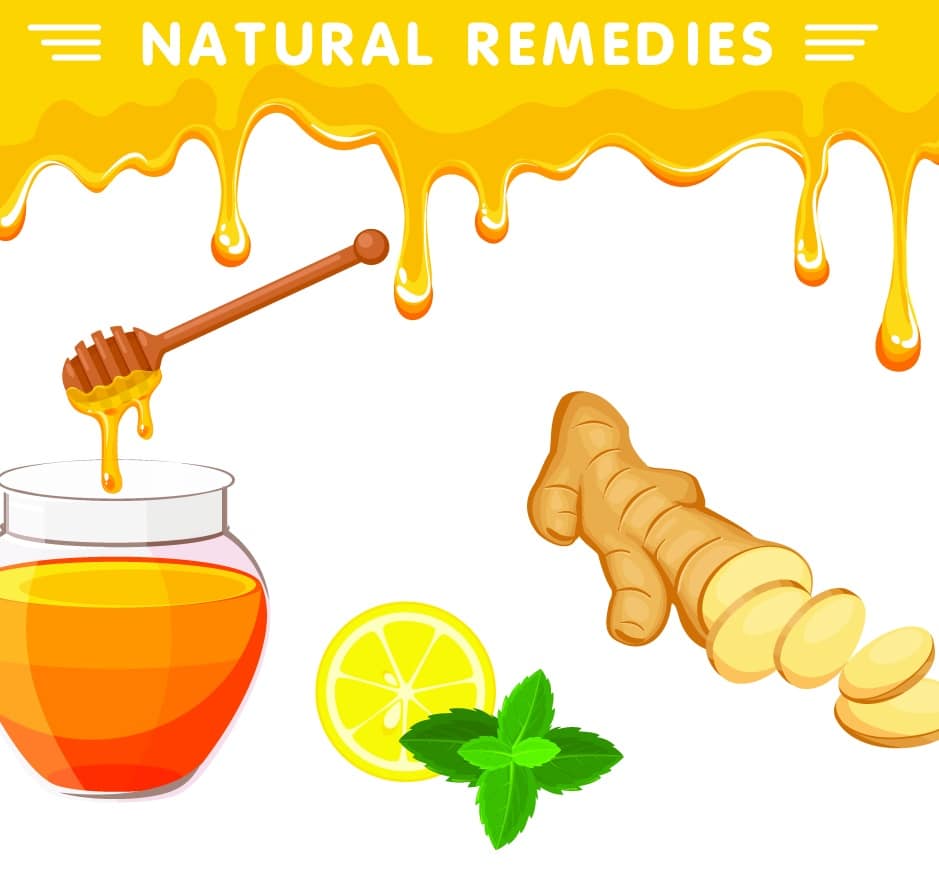
Can Supplements and Natural Remedies Cause Acid Reflux?
At-A-Glance
- More than half of Americans take daily dietary supplements; the U.S. market is $50 billion per year. Supplements are regulated by the FDA as foods; and by law supplement manufactures cannot make health (medical) claims for their products … but they do. So, which supplements are good or bad for acid reflux?
- Not Recommended: B-complex vitamins, chondroitin, glucosamine, peppermint oil, pepsin, HCL, effervescent Vitamin C, lemon, herbal bitters, and apple cider vinegar. All are popular supplements that can cause or worsen acid reflux, GERD and Respiratory Reflux (aka LPR).
- Three other supplements that claim benefits for acid reflux: DGL (deglycyrrhizinated licorice), turmeric, and digestive enzymes — actually appear to do nothing for reflux.
- Recommended: Aloe vera, ginger, probiotics, Manuka honey, and Chamomile are natural remedies that appear to be of benefit for refluxers.Disclaimer: I don’t know everything about the supplements/remedies discussed, and I recognize that there may be significant errors or errors of omission in this post. The opinions expressed herein are my own, based on a combination of the medical literature and my clinical experience.
If I have Acid Reflux, Which Supplements Should I avoid?
More than half of Americans take dietary supplements daily; and the U.S. market is expected to be $50 billion this year. Supplements are regulated by the FDA as foods, not drugs; and this supposedly means that supplements legally cannot make (medical) health claims.
Meanwhile, the Internet is full of advertised “health” products that claim to help people with acid reflux; but many of them make it worse or have no beneficial effects. Are these products mostly contemporary snake oil? Pretty much …
BTW, if you have not already seen it, I also have a blog Can Common Medications Cause Acid Reflux?
NOT Recommended
HCL (Hydrochloric Acid). Really? This terrible idea is totally wrong. First, almost no one has low stomach acid; that’s not a real thing for the average person. (Only 1-2% of people have low stomach acid.) Second, hypochlorhydria (low acid) is usually caused by an identifiable medical condition, e.g., pernicious anemia, stomach (partial-removal) surgery, radiation. And while there is a decrease of stomach acid as we age (in the elderly), it’s usually not clinically significant.
Why would anyone take HCL acid for acid reflux? My work has proven that one of the cornerstones of effective anti-reflux treatment is a Low-Acid Diet; also see my book, Dropping Acid; it was the first publication to link the words “reflux,” “diet,” and “cure.”
Pepsin. Really? As a supplement for reflux, taking pepsin must be the single dumbest idea in the world. All of my work shows that it is pepsin that causes tissue damage and cancer. Taking pepsin should never be a supplement for any condition … and NEVER for reflux!. For more about acid and pepsin, see What Is Pepsin?
Betaine HCL with Pepsin. As with pepsin above, avoid this product like the plague. And by the way, the FDA recently said no demonstrable therapeutic benefit.
B-Complex Vitamins. Over the years, many of my patients have reported burping, burning, and heartburn when taking B-complex vitamins. Instead, I recommend that people, especially women over 40, just take sub-lingual vitamin B-12 and niacin (B-3) capsules.
Chondroitin and Glucosamine. This combination, usually in a capsule, is touted as a treatment for arthritis; however a systemic review of the medical literature failed to demonstrate any significant benefits. Meanwhile, they cause reflux and should be avoided by any refluxer.
Peppermint Oil. Its claims include benefits for the common cold, sinus infections, headaches, irritable bowel syndrome, and acid reflux. But it is strange that peppermint is recommended for reflux when mints are well-known Reflux Triggers. Peppermint, all mints actually, pharmacologically relax the lower esophageal sphincter; mints can cause heartburn.
DGL (Deglycyrrhizinated Licorice). Licorice is considered to be a soothing, anti-inflammatory remedy that has been used by many to treat heartburn and gastritis. I don’t have strong feelings against DGL; however, it may increase mucus production, which is a common and annoying symptom (post-nasal drip) of reflux. Also, I don’t recommend DGL because I have never had a patient swear by its benefits … maybe DGL is okay for some; but remember, it won’t fix your underlying acid reflux problem.
Effervescent Vitamin C. Lots of people take vitamin C for its presumed immune system and other health benefits. I have no problem allowing refluxers to take vitamin C in pill form, but not effervescent vitamin C (or any other product that you mix up and drink). Stick with the pills, and they should be taken before or with meals.
Apple Cider Vinegar. While apple cider vinegar may or may not have some health benefits, treating acid reflux with it is not one of them. At pH 3.0, apple cider vinegar is too acidic; this is the same pH as stomach acid; and as such, it can activate pepsin already in your respiratory system. Regardless of what “info” to the contrary you find on the Internet, apple cider vinegar is just too acidic for people with reflux.
Lemon. Too acidic! With a pH of 2.5, lemon, lemon and lime, too are among the most acidic foods in the world, stomach acid strength; see apple cider vinegar above. Too acidic for the refluxer … indeed, people with serious heartburn (acid reflux) should avoid all citrus. The pH (acidity) of most fruits and vegetables is listed in Post on Juicing.
Herbal Bitters. Bitters reportedly stimulate stomach acid, and have no place in the treatment of reflux.
Turmeric. This common spice is touted by some to be good for reflux, but there are no data (not even good anecdotal data) to support the use of turmeric as “natural remedy” for reflux.
Melatonin. At present, there are some data that suggest some benefit for reflux; however, the data are not strong. The jury is still out on melatonin, because there are conflicting no data. At this time, I do not recommend melatonin, mainly because of potential side effects.
Iberogast. Iberogast (Steigerwald Arzneimittelwerk, Germany) contains plant extracts and is believed by some (mainly the manufacturer) to be of benefit for acid reflux. However, the only published study that showing benefit was authored by scientists who were employees and consultants of the Iberogast (Steigerwald) Company. By the very definition of conflicts of interest; the data are not credible. I do not recommend Iberogast.
Digestive Enzymes. The sponsors of this product claim it can help you digest specific foods when you do not naturally produce enough enzymes; this is what is called Medical Bullsh*t. Digestive enzymes do nothing for anyone, except perhaps for those who sell them. I bet this completely bogus product has made someone rich.
Recommended: Supplements That Are Probably Beneficial For Reflux
Ginger. Ginger is a wonderful plant (root) that has been found useful to treat morning sickness, nausea, and indigestion, and to increase gastric motility. Ginger has stood the test of time as a natural remedy. It can be used for in cooking in several forms, e.g., dried, powdered, julienned, or by itself in tea.
Probiotics. A systematic review has confirmed that probiotics are good for digestive heath in general, and for reflux in particular. I recommend probiotics for my reflux patients, and the inexpensive drugstore brand will do fine.
Manuka Honey. Manuka is a mono-flower honey (as is Sourwood Honey for example) that comes primarily from New Zealand. For centuries, New Zealanders have used Manuka to treat dyspepsia (indigestion) and other digestive problems; there are scientific data to support its use. And even though the benefits of Manuka are just beginning to be understood, I recommend Manuka Honey Tea and Manuka Honey Lozenges (expensive) for my reflux patients … especially after meals.
Aloe vera. Aloe is another time-honored natural remedy for reflux symptoms. It should be consumed as the inside gel from an aloe vera leaf, and not as a bottled beverage. Remember, bottlers add a lot of acid (by law), and this is not good for reflux. Also aloe vera in smoothies doubles a reflux remedy as a nice thickener.
Chamomile Tea. Another time-honored natural remedy for reflux, chamomile also reportedly helps alleviate anxiety and stress. Importantly, by itself, chamomile tea does not turn on stomach acid, and so it may be consumed in the evening by refluxers during the pre-bedtime fasting period … and it seems to settle the stomach, and take away feelings of hunger.
Multivitamins. I am asked frequently if multivitamins are okay to take for people with acid reflux; they are. They don’t help fight reflux; but they seem to cause no problems. Indeed, regardless of the combination of vitamins, I have no reason to believe that any multivitamin causes reflux. Unless specified above in the “Not Recommended” list, I think other vitamins are okay for refluxers. In addition, calcium, zinc, and CoQ10 seem to be all right, too.
Magnesium. Many people with constipation take magnesium; for those who do, I recommend two 120 mg. magnesium glycinate capsules first thing in the morning. Some authors list magnesium as possibly causing acid reflux, but this has not been my experience as a clinician. Magnesium appears to be safe in the formulation recommended.









